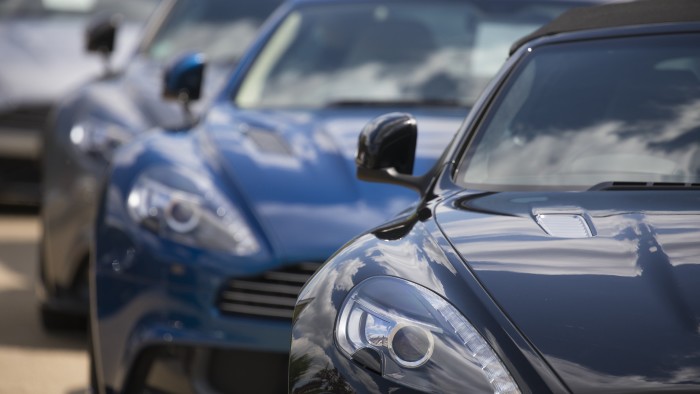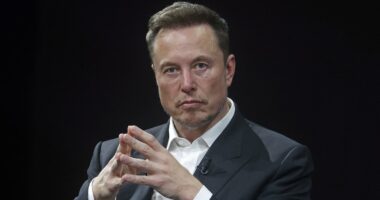Share this @internewscast.com
Stay informed with free updates
Vehicle production in the UK plummeted in May to the lowest level since 1949. This downturn occurred as a result of US President Donald Trump’s tariff war, which compelled Aston Martin and other British car manufacturers to stop their exports to the US.
Production levels for cars and vans at UK factories decreased by 33 percent in May compared to the same month the previous year, reaching a total of 49,810 units, according to data published by the Society of Motor Manufacturers and Traders on Friday.
This decline represents the fifth month in a row of reduced output, resulting in the most dismal monthly performance in 76 years, apart from periods when vehicle manufacturing plants were closed during the Covid-19 lockdowns in 2020.
British luxury brands, including Jaguar Land Rover and Aston Martin, suspended vehicle shipments to the US from April after the Trump administration slapped higher tariffs on foreign-made vehicles imported into the US.
Car shipments to the US fell 55 per cent year-on-year in May, reducing the US share of exports from 18 per cent to 11 per cent. Exports to the EU also fell 22.5 per cent.
Those US shipments are expected to resume with the scheduled implementation of the US-UK trade deal on Monday, under which Trump agreed to cut a 27.5 per cent American tariff on cars to 10 per cent for the first 100,000 vehicles shipped from the UK each year.
“While 2025 has proved to be an incredibly challenging year for UK automotive production, there is the beginning of some optimism for the future,” SMMT’s chief executive Mike Hawes said, citing the trade agreement and the recent unveiling of the UK’s industrial strategy, which promises to bring down energy costs by up to 25 per cent.
The agreement with the US was announced by Trump on May 8 but car executives have expressed frustration with the speed of its implementation. Just days ahead of the deal taking effect, companies have yet to be informed of the specific allocation of the quota system.
“It comes live on the 30th of June . . . so we’re planing to invoice three months’ worth of sales in a 24-hour period,” Adrian Hallmark, Aston Martin’s chief executive, said at an SMMT event on Tuesday. “That’s complexity and dynamism.”
Hallmark still welcomed the deal, saying British carmakers were now “less worse off than some of our European and non-European competitors”.
Even before the US trade war broke out, UK vehicle production had been declining as the industry struggled to meet the country’s tough electric vehicle sales targets.
Stellantis last year said the cost of complying with the government’s “zero emission vehicle mandate” was partly behind its decision to close its Luton van factory and consolidate its UK operations at its Ellesmere Port factory in Cheshire.
Ford also blamed the mandate as it cut 800 UK roles last year in a wider European restructuring.










